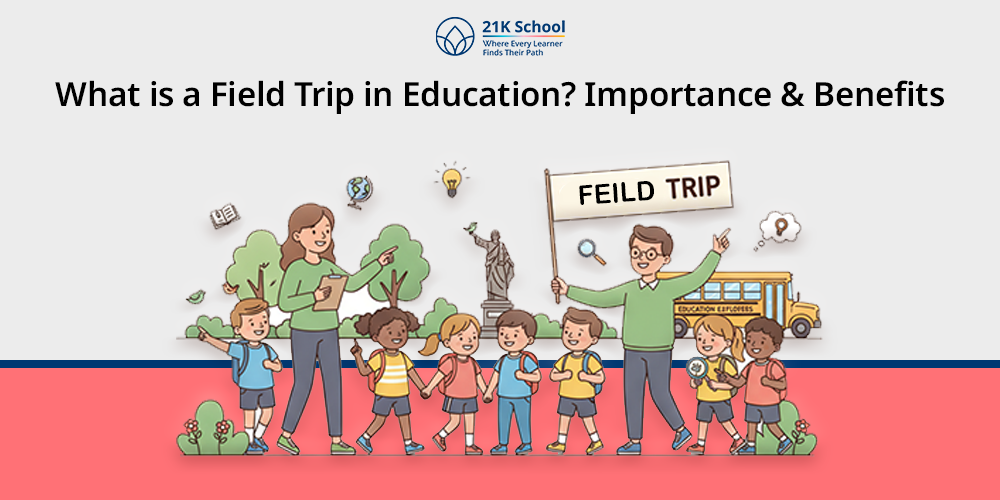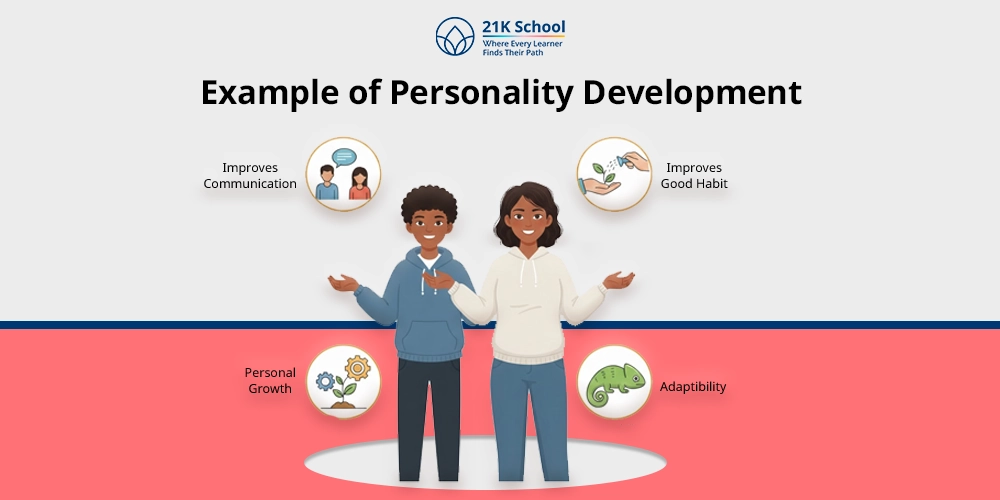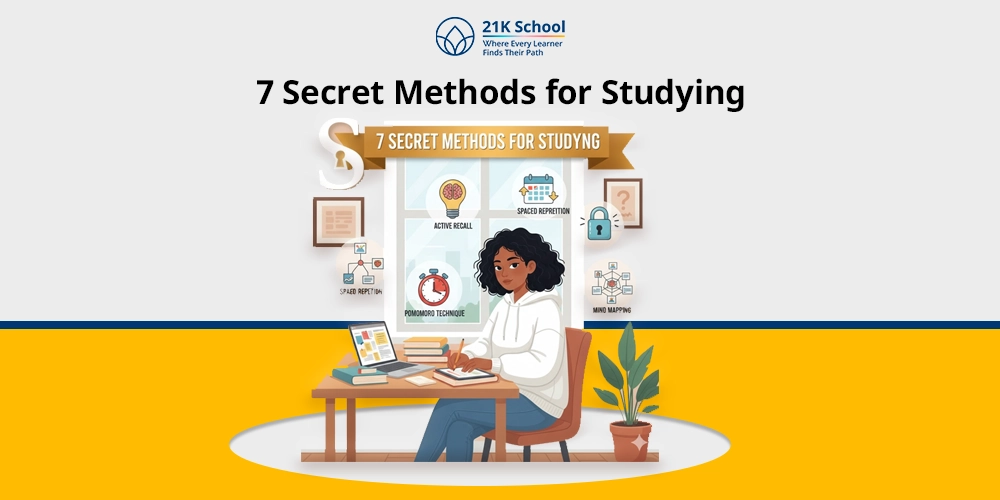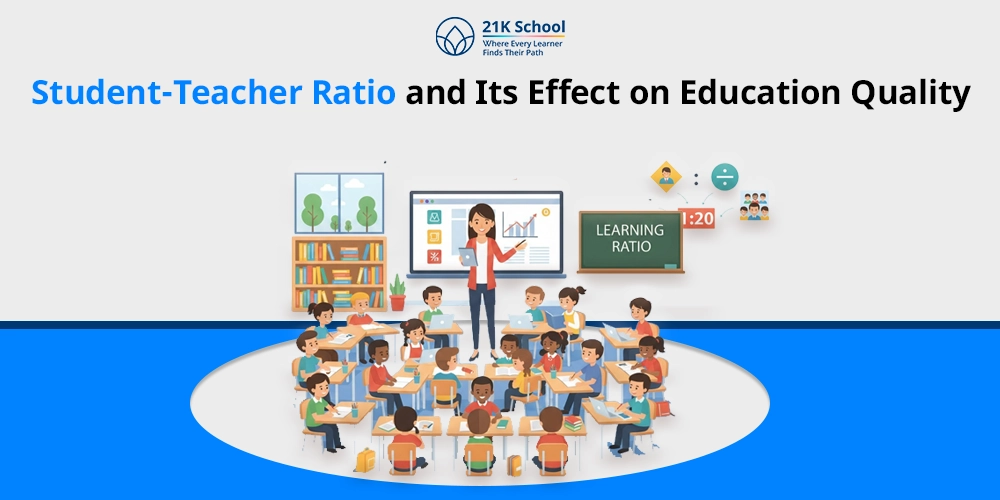
Field trips excite students who otherwise rely only on books.
You might remember going on field trips where you would have learned new things out of textbooks and might have had your best experience in school life.
It felt like a picnic but with more exposure to study related subjects.That is why field trips were introduced into the curriculum .
We will today dive deeper and understand the essence of field trips in education and how it can be planned effectively by mentors like you.
Contents
What Is a Field Trip in Education?
A field trip (also known as an educational excursion or study tour) is a planned visit outside of the classroom to a place where the students can see and engage lessons with their own experience.
These visits are carefully selected to correlate with the course of studies and learning outcomes of a subject.
To give an example, a history course for example may visit old ruins, a course in environmental science may be visiting a national park and an economics course may be visiting a local factory.
By having these experiences, the students are able to see things they had just read about, and pursue professionals in the field.
They can afford them a more practical knowledge of their subjects.
Field trips are understood to be among the potent instruments of constructivist learning.
As in educational psychology where students build their own knowledge based on direct experiences.
Objectives of Field Trips
The goals of taking field trips in education are:
- Increasing the Conceptual Understanding: To make students connect the theories in classes and real-life experience.
- Promoting A Participatory Approach to Learning: To encourage studying through observation, interacting as well as involvement.
- Training in Critical Thinking and Observation: The learners are trained in situations analysis, posing of questions, and conclusion making.
- Fostering Social Skills and Teamwork: Field trips help in communication, collaborative work as well as social bonding between peers.
- Inciting Interest to Learn: They also ensure education is exciting and students also find passions and career interests.
- Developing Emotional Intelligence: It is a way of being exposed to different environments that develops empathy, confidence and flexibility.
5 Types of Field Trips in Education
All forms of field trips have different educational experiences that make learning to be rich.
1. History and Cultural Trips
During these visits, students are exposed to heritage, traditions and culture of a part of a region or a nation.
Some of them are visits to museums, archaeological sites, monuments, heritage villages, and cultural festivals.
To understand history and social studies. The students learn to appreciate the past, diversity, and national identity.
Visiting the Red Fort in Delhi or Taj Mahal in Agra would enable the students of history to imagine the beauty, architecture and the history of the Mughal age.
2. Environmental or Nature Trips
These are trips that deal with study of nature, wildlife, ecosystems, and environmental conservation.
Students may go to forests, botanical gardens, riversides, and farms or even national parks.
This has been created to generate environmental awareness and encourage environmentally friendly sentiments.
Students are aware of the concepts such as biodiversity, conservation, and sustainability in the field.
Biology students could visit a mangrove forest or a wildlife sanctuary so as to learn about habitats, food chains and ecological balance.
3. Technological and Industrial Tours
Professional and technological field trips expose the students of the actual work environment, manufacture activities, and the utilization of modern technologies.
These are popular among students of commerce, science, and vocational subjects.
The ability to relate the theoretical business, engineering or technological concepts to the real world industrial processes.
This can be achieved by taking students to a car factory, where they can acquire knowledge about automation, production lines, system of management, and quality control.
4. Recreational or Fun Trips
Academic education is a crucial component in the whole learning process, while recreation and rest are parts of the whole just like other facets.
Amusement parks, picnics and camps are also recreational trips that help bring the team more closely together as well as relieve student stress .
To achieve emotional balance, improve relationships with peers and study well.
Such field trips keep the students refreshed and they come back to their studies with greater energy.
A camp out adventure where outdoor games and team building activities are played to help harness leadership, cooperation and creativity.
5. Community and Service-Based Trips
Such visits include social institutions such as orphanages, old age homes, NGOs, or communication centers. Students take part in either service, charity or education outreach.
To be empathetic, responsible and have civic consciousness. They assist students in understanding the social issues in the real world and promote group performance.
An individual attending a psychology class attending a special education center to meet the children with disabilities can be taught about inclusivity and human diversity.
Benefits of Field Trips in Education
The field trips bring advantages that extend beyond the academic performance to include emotional, social and moral growth.
1. Hands-On Learning
Textbooks can be pictured lively during field trips.
The students are able to observe, touch and learn the subject directly, hence gaining a better understanding.
This can be done by looking at a real-life chemical plant or natural habitat which imparts to what is learnt in the classroom in a manner that is impossible through lecturing.
2. Enhances Retention
Students who are actively involved in experiential learning have a longer memory span.
Experience facilitates memory because it associates learning with tangible experience and emotions.
3. Encourages Curiosity and Observation
Whenever one is in a new surrounding, he or she will be interested in knowing what is going on.
Students are more prone to ask questions, observe patterns, and be able to explore on their own, adult skills that are critical in a lifelong learning process.
4. Facilitates Social and Emotional Growth
Field trips are important in terms of teamwork, cooperation, and communication skills .
They also assist students to work towards emotions, diverse opinions, and establish friendship in an outside the formal classroom environment.
5. Exposure to Real-world Situations
Your young learners gain experience of working places, real life settings or cultural hotspots hence students can interpret theories taught in classrooms in real life.
It expands their perception of the world and gets them ready for the challenges of the real world.
6. Break from Routine
The decision to go outside the classroom refreshes students and teachers.
It provides a calming effect which contributes to the decrease of burnout, motivation, and improvement of teacher-student relationship .
How to Plan an Effective Field Trip in Education?
An effective field trip should be adequately prepared, organized and followed up.
Choosing this leads to achieved educational objectives through proper planning.
1. Define Learning Goals
To begin with, it is necessary to identify what students will gain during the trip.
Work must meet curriculum, be it knowledge of a process or appreciation of a culture or observations on things in nature.
2. Choose the Right Location
An appropriate place to visit must be decided that incorporates knowledge and fun in learning .
There are accessibility, safety, value education and affordability.
One may use examples of a biology teacher when he chooses a botanical garden rather than a zoo to have a more educational approach.
3. Preparation Students Before the Trip
It is critical that briefings are done before trips.
The teachers are expected to address the importance of the site, the fun learning activities , and the behavioral standards.
With background information, it is known that students know what to search for and how to take the notes effectively.
4. Get Necessary Permissions
Permission from school officials and parents are mandatory.
It is the responsibility of the teachers to make sure that medical information, consent forms and emergency contacts are written beforehand.
5. Supervision and Safety
The first factor should be safety and you will have to plan an adequate teacher to student ratio, first aid kit, and emergency procedures.
Teachers are advised to keep headcounts as well as have proper student discipline without limiting exploration.
6. Post-Trip Reflection
The reflection activities (report writing, group discussions or presentations) that follow the trip aid in the learning process.
Students are able to exchange their insights and relate their experience to academic ideas, as well as analyse their observations in a critical manner.
Role of Teachers in Field Trips in Education
Teachers become very important in planning, implementation and evaluation of field trips.
They are required to carry out their duties:
- Organizer and Planner: Choosing the appropriate destinations, logistics, and permission.
- Facilitator of Learning: Helping students in their ability to correlate observations and academic material.
- Mentor and Supervisor: Safety provision, discipline and participation encouragement.
- Evaluator: Evaluation of learning outcome in students by assignment of the students, reflections of students or other types of feedback.
- Motivator and Role Model: Modeling an interesting interactive approach that motivates students to learn not only in the classroom.
Good educators make field trips an undeniably good adventure, one where each student will feel a part and safe and have their brains engaged.
Concluding Comments
Field trips can be an extension of the classroom which gives the learning a reality.
They do it by developing curiosity, critical thinking , empathy and a feeling of connection with the world.
Incorporating field experiences into the educational process can significantly add value to academic and acquiring schools.
With academic knowledge and also well-rounded and socially responsible people, planned field trips make passive learning to be first actively discovered.



